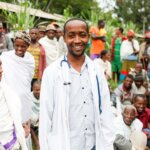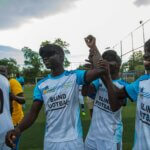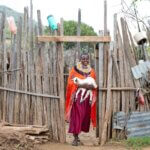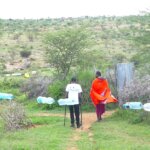- Eye Health
Dr Isaac Vasco da Gama was until recently the only ophthalmologist dedicated to child eye health in the country of 32 million. He dreams of a day when all Mozambican children have access to quality eye care.
“I like things that are difficult, that other people don’t want to do.”
Dr Vasco da Gama isn’t afraid of a challenge.
Having decided on a medical career, he received sponsorship from Light for the World to become an ophthalmologist. He studied ophthalmology in Tanzania before a paediatric specialisation in India, where he treated dozens of children each day.
“When I finished my paediatric ophthalmology training in 2017, I was asking myself where to start, because there was a lot to do,” Dr Vasco da Gama says.
He returned to his home province of Zambézia in Mozambique, where he started working at Quelimane Central Hospital.
He arrived as the plan to improve child eye health in the hospital was taking shape. Light for the World advocated with the Ministry of Health and management of Quelimane Central Hospital to allocate a larger space to ophthalmology services, including for paediatric ophthalmology. With support from partners, extensive renovations were completed, with two operating theatres installed.
“I was lucky because Light for the World supports this hospital and province, and they supported me,” says Dr Vasco da Gama, now head of the hospital’s eye department.
He was supported under Light for the World’s innovative 1,2,3 I can see! programme. The 10-year project in Burkina Faso, Ethiopia, Mozambique and Uganda advocates for the promotion of eye health in schools and helps reinforce healthcare systems with the aim of improving child eye health.
Light for the World’s support for Quelimane Central Hospital and Dr Vasco da Gama has been game changing. Light for the World have sponsored the building of dedicated operating theatres in the eye department and renovations to make the department child friendly. There has also been a significant investment in specialist equipment and medicines.
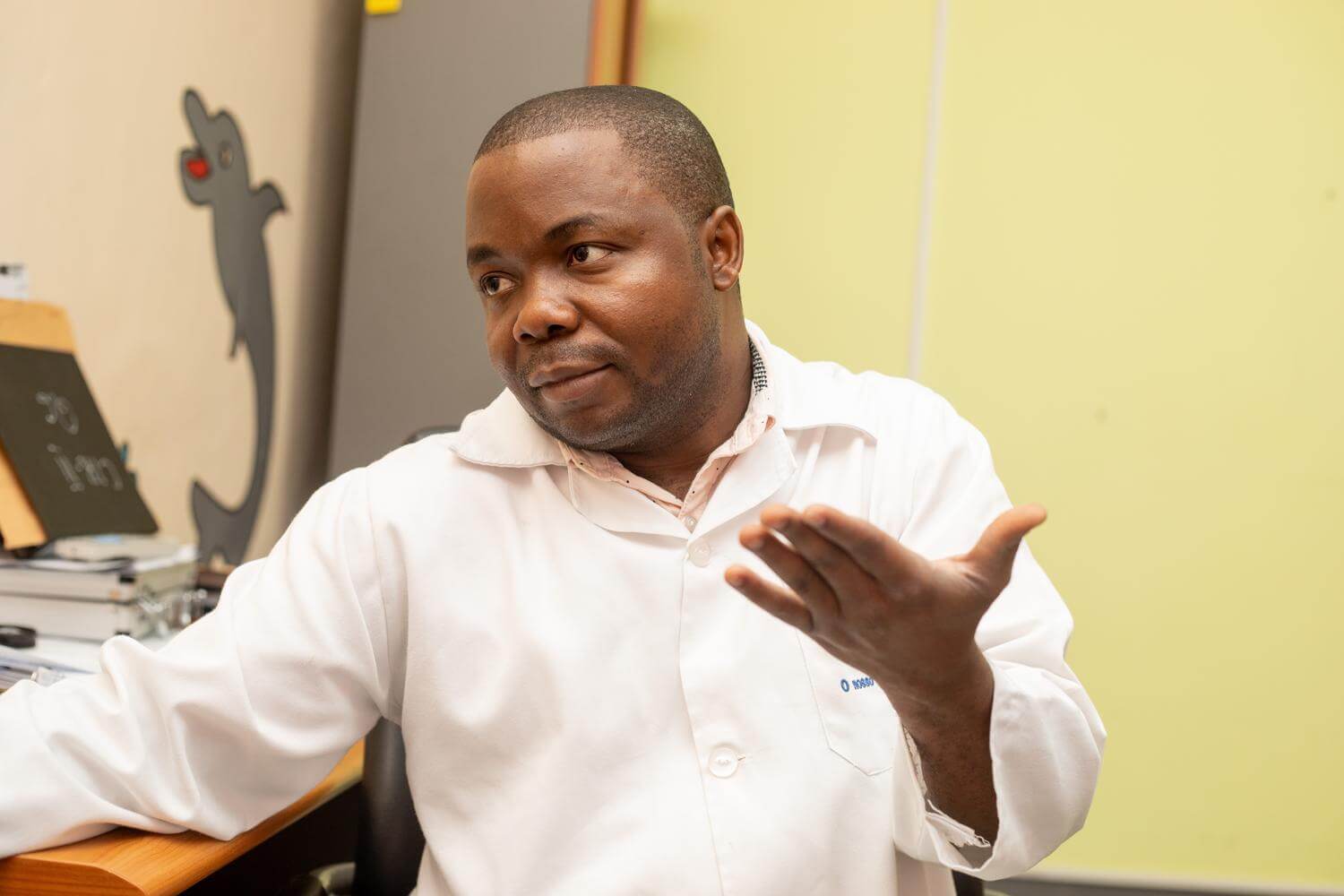
1,2,3 I can see! also initiates and facilitates the training of general and specialist ophthalmologists. Dr Vasco da Gama has been joined by two more Mozambican paediatric ophthalmologists, who graduated in 2022.
The focus on child eye health in Mozambique
It is estimated 40% of children are blind from eye conditions that could be managed or prevented with access to eye care services. Cataracts are now the principal cause of avoidable blindness for children in low-income countries.
Cataract operations on children are more difficult to perform than on adults. Dr Vasco da Gama, who recognises children are not simply small adults, conducts regular cataract operations and more complex surgeries.
When he started his work in Mozambique, he had to convince some colleagues of the need to focus on children. He would visit other hospitals and ask for referrals of children with eye problems.
“People started seeing the results. My colleagues started understanding and even trusting in what I do,” Dr Vasco da Gama says.
“If you compare the number of adult patients and child patients, the number of children is not significant. But if you compare the result, it is very good. If I do a cataract operation on a child, I will give them 70-plus years to live with good sight. I will contribute 70 years.”
Dr Vasco da Gama treats around 50 children a week at Quelimane Central Hospital and performs about five surgeries.
He knows many more children in Mozambique need treatment but never receive it. Various factors prevent children from receiving quality child eye health treatment, including the cost and, particularly for those in rural areas, the distance from Quelimane.
Common child eye health problems include refractive errors, cataracts, glaucoma and retinoblastoma (a life-threatening eye tumour).
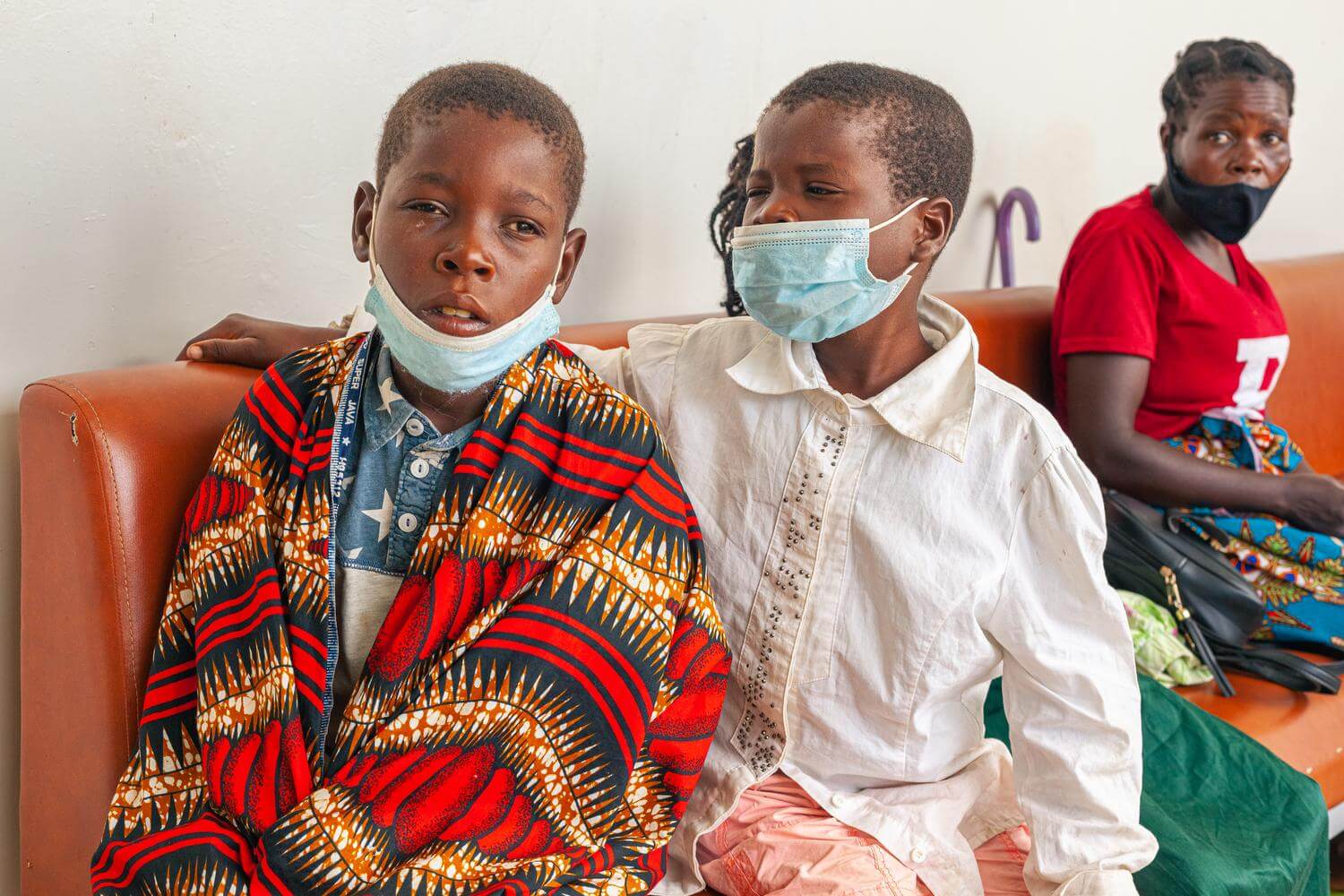
At Quelimane Central Hospital, the eye clinic is decorated with colourful cartoons and paintings offering simple explanations of different child eye health conditions.
“People come from all over the country to see me and that is really great,” Dr Vasco da Gama says.
For me I’m happy, because I save the vision of kids.”
Training the next generation of paediatric ophthalmologists
The cost of traveling to Quelimane is unaffordable for many families, so Light for the World offers a programme to reimburse travel expenses.
For some children who cannot travel to Quelimane, Dr Vasco da Gama goes to them. He does an outreach twice a year to Nampula in Northern Mozambique. In November 2023, he performed squint surgery on about 75 children and taught other medical professionals how to conduct the operation. Left untreated, squints can lead to blindness.
Dr Vasco da Gama knows he cannot do it all. He is passionate about training the next generation of paediatric ophthalmologists. He hopes raising awareness of child eye health, especially in rural communities and schools, will increase interest in the specialisation and the number of children seeking eye care.
Last year, the national School Eye Health Programme was launched in Zambezia, which sees tens of thousands of pupils screened for eye problems. The number of surgeries for child eye conditions increases each year.
Child eye health challenges
There have been notable improvements in the six years Dr Vasco da Gama has focused on child eye health. He describes the situation in Zambézia before and after his training as “like water and wine. It has changed a lot.”
But significant challenges remain.
There is very little information on the prevalence of child eye problems in Mozambique. SISMA, the national health monitoring and information system, now includes eye health data, following advocacy and funding from Light for the World. With this support, collection instruments were designed, including record books and different data collection sheets for various levels like district and provincial. Data can be viewed electronically anywhere in the country.
However, there is a need for more research and reporting to establish eye health data for the broader population.
There also remains a lack of awareness, infrastructure, specialist equipment and trained ophthalmic nurses, technicians and ophthalmologists.
Some Mozambicans prefer traditional remedies — which often worsen eye problems — to modern medicine. Some parents believe conditions like a squint or cataract are an uncurable “punishment”. They do not realise such conditions can be easily treated with early identification.
Dr Vasco da Gama works with community leaders to raise awareness and teach screening.
“Operating per se is not a problem. We can train in a week, two weeks, how to operate on a cataract. But it is how to identify the children who need the operations,” he says.
‘The best gift I have received’
Despite the challenges, the reward of restoring a child’s sight and seeing the reactions of their grateful parents makes the work worthwhile.
“Sometimes I have thought I’d chosen the wrong speciality,” Dr Vasco da Gama says.
“But seeing those reactions is the best gift I have received. It encourages me a lot to work and think we can make progress.”
